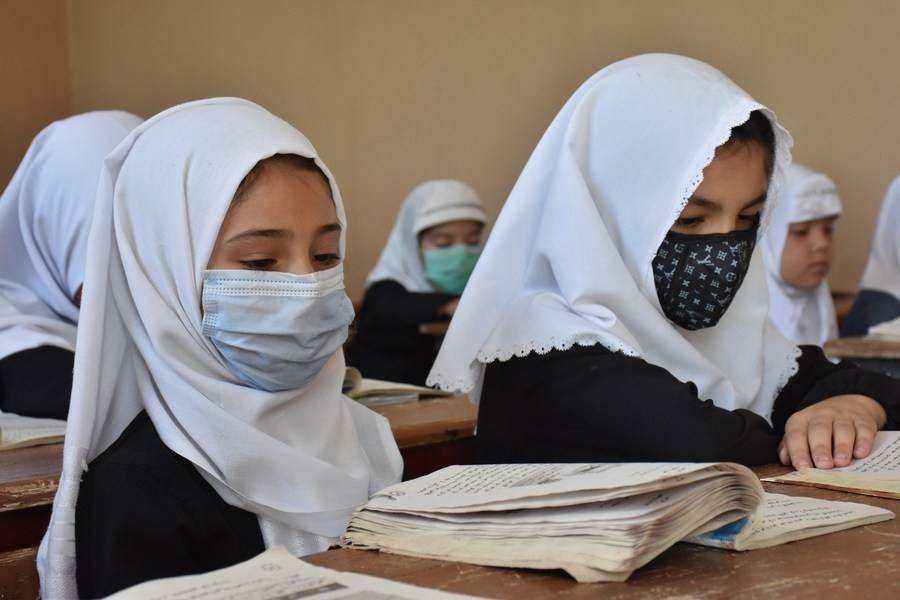Taliban spokesperson Zabihullah Mujahid released the list of changes on Tuesday…reports Asian Lite News
Amid a global call for the reopening of secondary schools for girls, the Taliban’s supreme leader Haibatullah Akhundzada has reshuffled several national and provincial positions, including the acting education minister.
Taliban-appointed acting education minister Noorullah Munir would be replaced by the head of Kandahar’s provincial council, Maulvi Habibullah Agha, Pajhwok news agency reported.
Taliban spokesperson Zabihullah Mujahid released the list of changes on Tuesday.
This reshuffle comes as the Taliban has been under fire for the exclusion of girls from high schools in Afghanistan. The Taliban say they are working on a plan to open secondary schools for girls but have not given a specific timeframe.
On the day marking the first anniversary of the exclusion of girls from high schools on September 18, the United Nations reiterated its call for the country’s de facto authorities to take urgent measures to reopen high schools for all.
“This is a tragic, shameful, and entirely avoidable anniversary,” said Markus Potzel, the acting head of UNAMA, the UN Assistance Mission in Afghanistan.
“The ongoing exclusion of girls from high school has no credible justification and has no parallel anywhere in the world. It is profoundly damaging to a generation of girls and to the future of Afghanistan itself,” said the UN envoy, who is also the Secretary-General’s Deputy Special Representative for Afghanistan.

When high schools were re-opened to boys on September 18, 2021, the de facto authorities instructed girls to remain at home. It is estimated that more than one million girls have been barred from attending high school over the past year.
According to the UN mission in Afghanistan, the Taliban have failed to deliver on various promises that they will enable their return to the classroom. The ban prevents girls attending grades seven to twelve, primarily impacting girls aged between 12 and 18.
“The denial of education violates the most fundamental rights of girls and women. It increases the risk of the marginalization, violence, exploitation and abuse against girls and is part of a broader range of discriminatory policies and practices targeting women and girls since the de facto authorities assumed power in the summer of 2021,” the United Nations Assistance Mission (UNAMA) said in a statement last week.
The UN has called upon the Taliban to reverse the slew of measures they have introduced restricting Afghan women and girls’ enjoyment of their basic rights and freedoms.
“The window of opportunity may be narrowing, but we urge them to take concrete steps – such as actively enabling girls to return to high school – that can lift Afghanistan up and give hope to its people,” the UNAMA statement added. (ANI)

